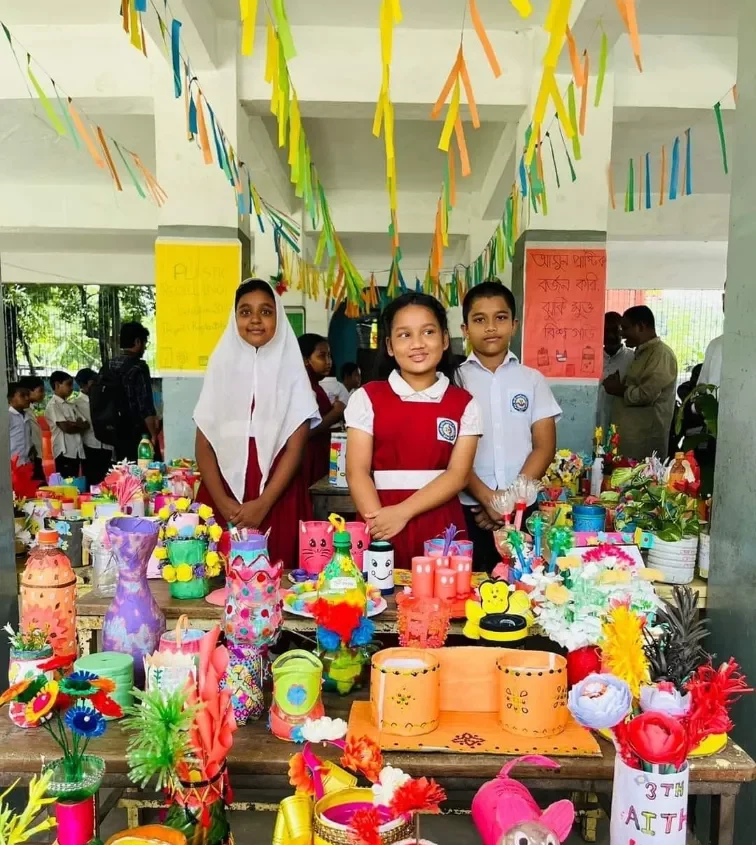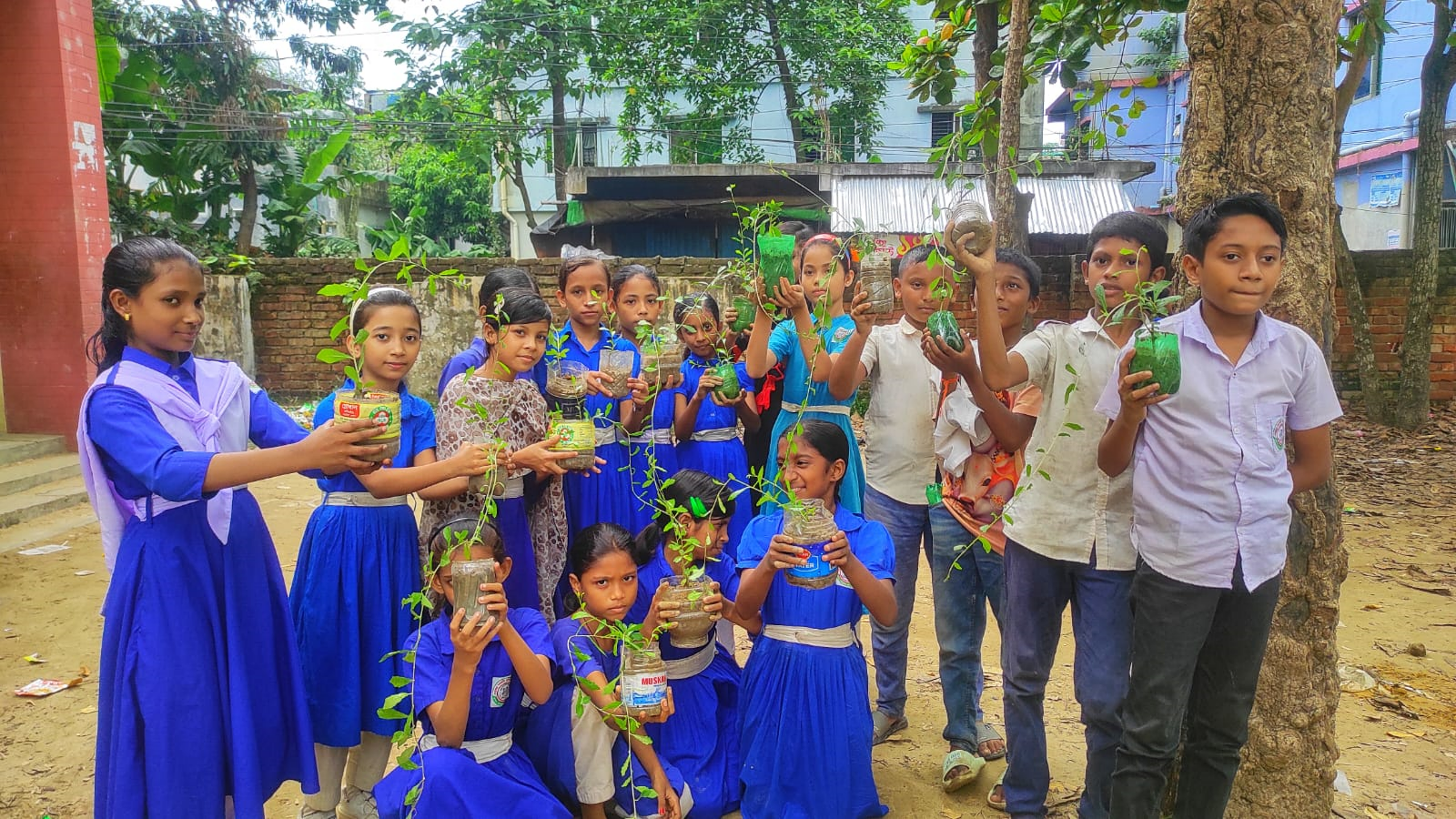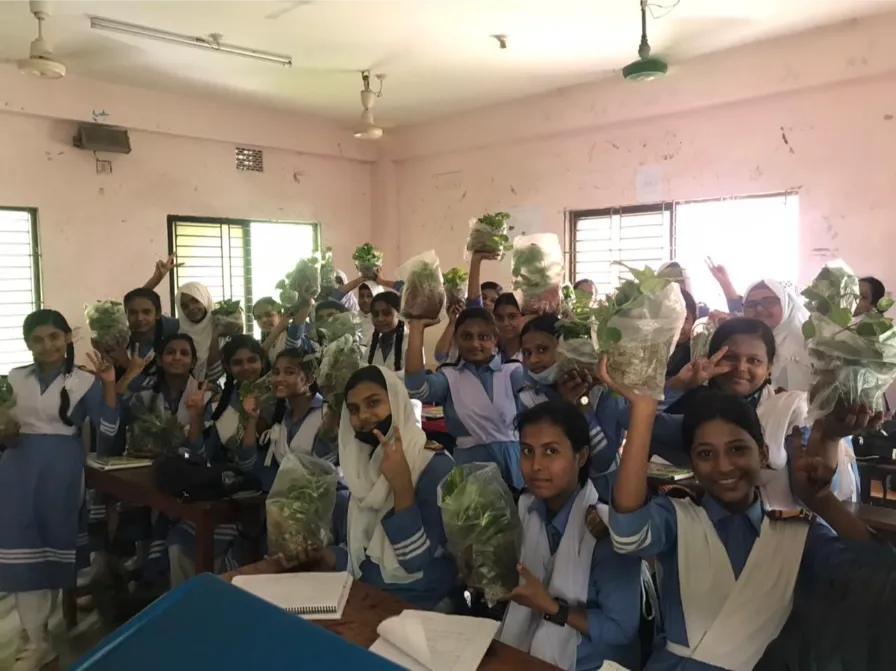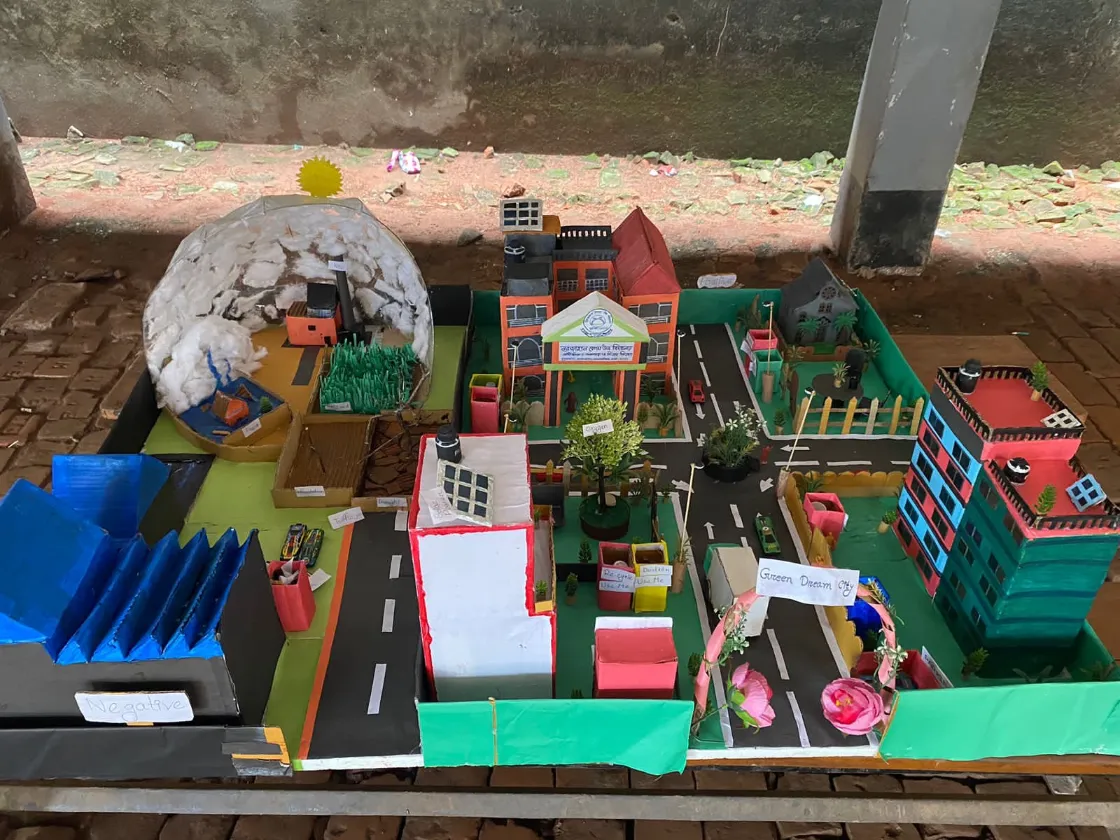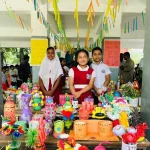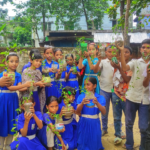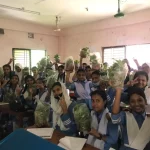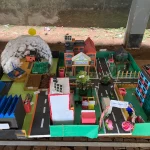Teacher: Rajasree Guha

Rajasree Guha
Rajasree currently serves as the climate education fundraiser and climate mobilizer in her organization, Teach For Bangladesh. Her previous experience involved managing projects related to zero waste management and biodiversity within a local non-profit organization in Bangladesh.
She has strengthened the organization’s capacity in climate education; built the right mindset for climate education; empowered teams; and cascaded learning to teachers to implement climate education in their classrooms and through collaboration with parents and schools; leading to improved collective leadership. Rajasree is passionate about launching climate programs in her organization and believes in the power of climate education to create positive and sustainable change. She aims to equip the next generation with the knowledge and tools to address climate change. Together, she believes that teachers can inspire and empower students to become environmental leaders, building a sustainable and resilient future for all.
Usefull links related to the Solution
Overview
Rajasree is part of the team at Teach For Bangladesh (TFB). She has drawn on her experiences of working for a non-governmental organisation – which worked to empower marginalised communities who were experiencing the effects of climate change- to develop a teacher training module which supports the work TFB is doing to establish climate literacy through its Green Curriculum inititiative. By instilling environmental awareness and sustainability principles into the curriculum Rajasree believes we can equip the next generation with the tools and knowledge necessary to build a more sustainable world.
Theory of Change
Climate education and action at a school level is considered a top priority within the Bangladeshi education system, however, most teachers feel unprepared to effectively equip future generations with climate education. This initiative aimed to equip 30 teachers with the tools, mindsets and resources to teach climate education. This was provided alongside the TFB Green Curriculum initiative which has already integrated climate education into the existing National Curriculum. By equipping teachers to teach climate education, students will understand the root causes and impact of climate change, shifting their behaviour and attitudes towards more sustainable practices.
Approach & Actions
The initiative focused on training 30 teachers in Dhaka and Chattogram, the teachers came from 22 primary and secondary schools. The teacher training was designed to leverage the existing TFB community outreach systems to share learning with a wide variety of stakeholders. The training was also planned to complement TFB’s Green Curriculum’ which focuses on sustainability, environmental stewardship, and climate literacy in the classroom.
A series of workshops were used to provide in-service teachers with contextually tailored training materials and a handbook was developed to support the teachers’ development. The module aimed to enable teachers to effectively teach their students; cultivating self-awareness, agency, and a growth mindset, which are all essential for developing climate resilience through climate education. The combination of the Green Curriculum and the teacher training module supports students in developing the knowledge and skills necessary to make informed decisions in academic subjects and on issues of national and global significance, such as climate education.
Impact
The initiative has so far reached 1500 students across Bangladesh. A significant impact has been seen in the classrooms of the teachers who underwent the training, teachers now feel confident to integrate climate education into core subjects like Bangla, English and Mathematics; making it a natural part of what students are already learning. Student agency for collective action has also increased, for example after learning about climate change, 1500 students across 22 schools in two divisions of Bangladesh organized a week-long climate awareness event called ‘Climate Week’ where they demonstrated their knowledge and projects to parents, head teachers, system leaders and other external stakeholders. A partnership with an organisation that facilitates learning through play-based and interactive methods was also developed, this increased the TFB training team’s capacity to deliver Climate Education in an engaging way.
